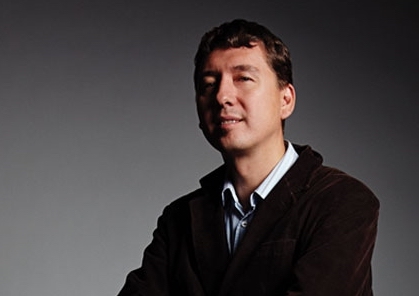Age: 38
Job Title:Community organizer, Greater Edmonton Alliance
Why He’s a Top 40: For using collective action to create change in our city
Community organizer Michael Walters shows up for lunch in a dress shirt and pants, looking like any typical downtown office worker. But don’t be fooled. Beneath this conventional facade burns the passion of a man totally committed to values many of his generation can’t mention without ironic air quotes – principles like “the common good,” “social justice” and “compassion.”
His message sneaks up on you through a mix of street-smart pragmatism and an idealistic belief in hope and change. As community organizer of the Greater Edmonton Alliance, Walters also walks that talk, showing small-business, labour, religious and often disparate community groups how to improve Edmonton’s social landscape. Through the alliance’s efforts, the city now has 438 more units of affordable city housing than four years ago. Currently, the alliance is working on recommendations for city council’s Municipal Development Plan aimed at preserving local farmlands, and November marks its launch of Sustainable Works Edmonton, a co-operative project aimed at reducing energy costs and emissions in homes of the poor and working poor.
That may sound high-falutin’ for a kid raised around Drayton Valley during its rough-and-tumble oil boom days who was constantly moving from oil field trailer-park to his grandparents’ farm, but Walters has a history of getting results. He once mobilized inner-city neighbourhoods to remove and revitalize 150-plus derelict slum-landlord properties while working for the Community Action Project.
Inspired by Edmonton’s inner-city street life, he found his voice as a poet. Then, as managing editor of Our Voice, he gave the homeless a forum for theirs, publishing their stories and providing a creative alternative to begging. He also founded the Inner City Poetry Foundation, compiling five volumes of poetry by street people entitled Songs of the Street. All five volumes sold out, with all the profits going to those artists.
Walters says one ironclad rule of community organizing is never do for others what they can do for themselves. Instead, he chooses to reweave the social fabric. He finds the common threads between previously isolated groups and individuals, then knits those together to produce a tough new textile called collective power. It’s not about issues, he explains, it’s about connecting people and building power through relationships. We may wear coats of different colours, but “underneath our incredible differences we share an incredible sameness,” Walters notes. “Human interests always overlap in some areas and that’s where we find opportunities to integrate for a better tomorrow.”
